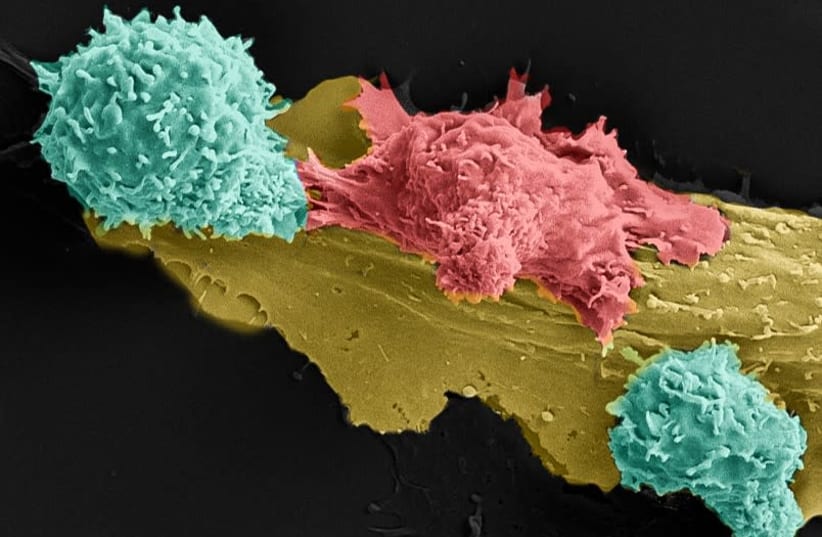Published in the academic journal Science Immunology, the study proposes that the reason for some patients having milder cases of COVID-19 is due to the immune system's T cells "remembering" a similar, weaker type of coronavirus in the past.
T cells are part of the body's immune system, and have the function of remembering pathogens so they can more easily combat them again.
This is important as while much of the scientific discussion on immunity focuses on antibodies – which are proteins that latch onto a virus before it can infect cells – these can be easily fooled.
“Pathogens evolve quickly and ‘learn’ to hide their critical features from our antibodies,” Prof. Mark Davis, the study's lead author and director of Stanford's Institute for Immunity, Transplantation and Infection, explained in a statement.
T cells, by contrast, operate differently and are harder to trick, and as such can even present a way to ensure immunity after antibodies fade.
The findings reveal a possible answer for why some people are more resistant to COVID-19, especially young children.
Seasonal coronaviruses that can cause the common cold are especially prevalent among children. This exposure may, in fact, have helped their T cells resist COVID-19.
“Sniffles and sneezes typify the daycare setting,” Davis added, “and coronavirus-caused common colds are a big part of the reason. As many as 80% of kids in the United States get exposed within the first couple of years of life.”
The findings are far from unprecedented. The idea of a similar disease helping give immunity to a more dangerous one has been seen before in history, such as how Louis Pasteur discovered cow pox kept one from developing smallpox. Indeed, inoculation works by, essentially, exposing one to a small, non-dangerous form or the pathogen so their bodies can resist it later.
But these findings are also supported by another study from May, which itself supposed that COVID-19 will eventually be just another seasonal cold.
Conducted by researchers from the University of Utah and published in the academic journal Viruses, the human body's immune system has learned from the pandemic and will adapt and change. This, in turn, will impact the severity of the disease, rather than the disease itself changing.
An example given by the study's senior author Prof. Fred Adler was one particular type of seasonal coronavirus. Nowadays the strain isn't particularly dangerous or severe. However, it may have once been the virus that caused the Russian flu pandemic in the late 1800s.
Like the Russian flu, COVID-19 could soon follow a similar path.
